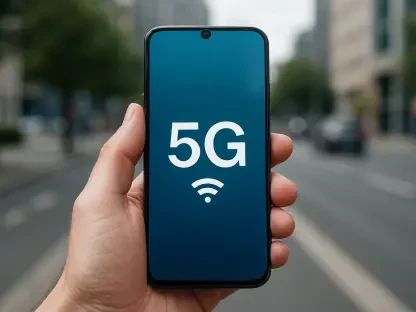In a global landscape marked by escalating cyber threats, the recent U.S. government actions against Chinese national Guan Tianfeng and his alleged associations with hacking attacks on Sophos firewalls have raised critical questions about the extent of state-sponsored cyber espionage. With cyber-attacks becoming increasingly sophisticated, the charges against Guan and his company, Sichuan Silence Information Technology, underscore the severity of the cybersecurity threat. The hacking campaign, spanning over five years and targeting specific vulnerabilities in Sophos firewalls, aimed to plant backdoors and steal sensitive data. These actions have not only compromised the security of around 81,000 firewall devices globally but also brought focus to the geopolitical dimensions of cyber espionage, involving accusations against China’s Ministry of Public Security.
Guan Tianfeng’s Alleged Role and U.S. Government Response
Guan Tianfeng, also known by his cyber alias GBigMao, has been charged by the U.S. Department of Justice (DoJ) for orchestrating these sophisticated cyber-attacks. The indictment points to his exploitation of a zero-day vulnerability identified as CVE-2020-12271, known for enabling unauthorized access and control over targeted firewall systems. Guan and his associates allegedly operated under the auspices of Sichuan Silence Information Technology, a private company with apparent connections to China’s Ministry of Public Security. This relationship signifies not merely a willingness but an organized endeavor by state-sponsored actors to engage in cyber espionage, particularly through the development of tools designed to scan and detect overseas networks, suggesting a broad-reaching espionage agenda.
In reaction to these significant breaches, the U.S. Treasury Department has implemented sanctions against both Guan and Sichuan Silence, noting the critical threat posed by such espionage activities. Meanwhile, the Department of State has intensified its efforts by offering up to $10 million for information leading to Guan’s identification or location, emphasizing the gravity of his alleged crimes. Furthermore, the Federal Bureau of Investigation (FBI) has included Guan on its Cyber’s Most Wanted list, underlining the unprecedented measures taken to capture and prosecute individuals involved in state-sponsored cyber-attacks. These initiatives signal a comprehensive approach, combining legal, financial, and investigative strategies to counteract these threats.
Sophos’ Countermeasures and the Broader Implications
Sophos, the cybersecurity firm targeted directly in these attacks, took significant steps to counter the hackers’ advanced techniques. By using custom implants to monitor the attack, Sophos greatly aided the FBI’s efforts to identify and investigate the perpetrators. This cooperation led to the exposure of Sichuan Silence’s Double Helix Research Institute and confirmed the link between the hacking operations and the persona GBigMao, ultimately revealing Guan’s involvement. These discoveries highlight the pivotal role of cybersecurity experts and underscore the significance of private-public partnerships in tackling cyber threats.
The U.S. government’s actions against Guan and Sichuan Silence are part of a broad initiative to reduce Chinese state-sponsored cyber espionage. With increasing evidence of systematic attacks, the Department of Justice and other agencies emphasized the importance of international cooperation to address these breaches. The prevalence of modern cyber threats requires nations to share intelligence, resources, and strategies to strengthen global cybersecurity. The case of Guan Tianfeng and Sichuan Silence highlights the urgent need for vigilance, international collaboration, and strong defenses to protect sensitive data from sophisticated cyber-attacks. This narrative illustrates a concerted effort to secure digital realms against espionage, providing a template for future cybersecurity strategies.









